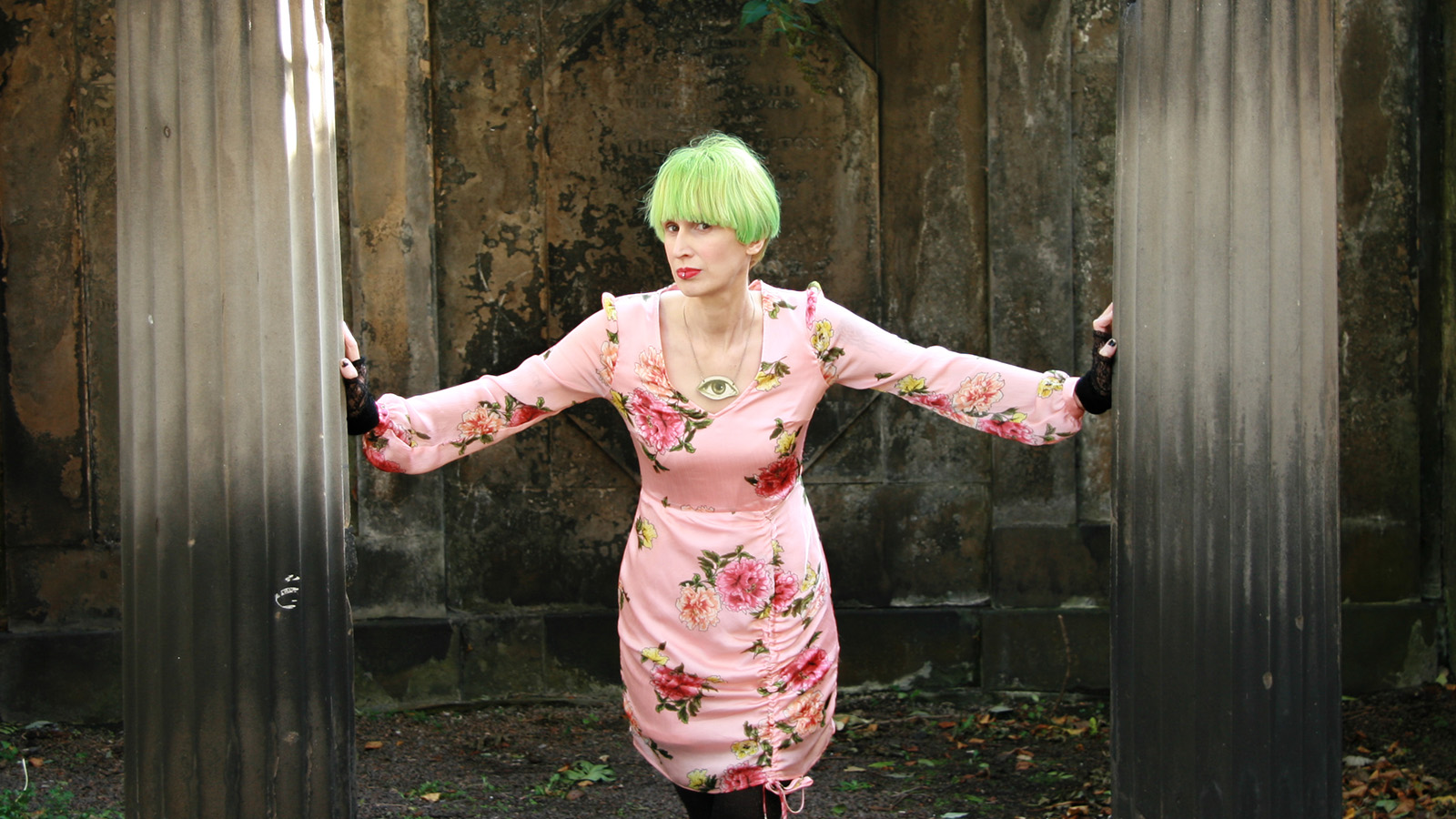
Ever Dundas. Image: Cinn Curtis
It’s a busy time for award-winning Scottish author Ever Dundas: in August she’ll be launching The Inklusion Guide with co-founder Julie Farrell at the Edinburgh International Book Festival; and in October, her second novel HellSans, which was supported by an Open Fund award from Creative Scotland in March 2017, will be published by Angry Robot Books.
Fortunately, we managed to grab a precious hour with Ever before it all kicks off, where she told us that becoming an author was always part of her plan – “I’ve never wanted to do anything else,” she confessed.
That determination followed her into adulthood: she graduated with a First-Class degree in Psychology and Sociology from Queen Margaret University in 2011, and went on to earn her MA in Creative Writing from Edinburgh Napier University.
“It’s an MA that I really wanted to do [because] it celebrates genres like Horror, Fantasy, Sci-Fi and Crime and also had the module on writing comics as well, which was amazing.”
We’re discussing HellSans, Ever’s second novel about a typeface used by the government as ‘the ultimate control device’. HellSans follows her debut novel Goblin, published by Saraband Books and winner of the Saltire Society’s First Book of the Year Award 2017.
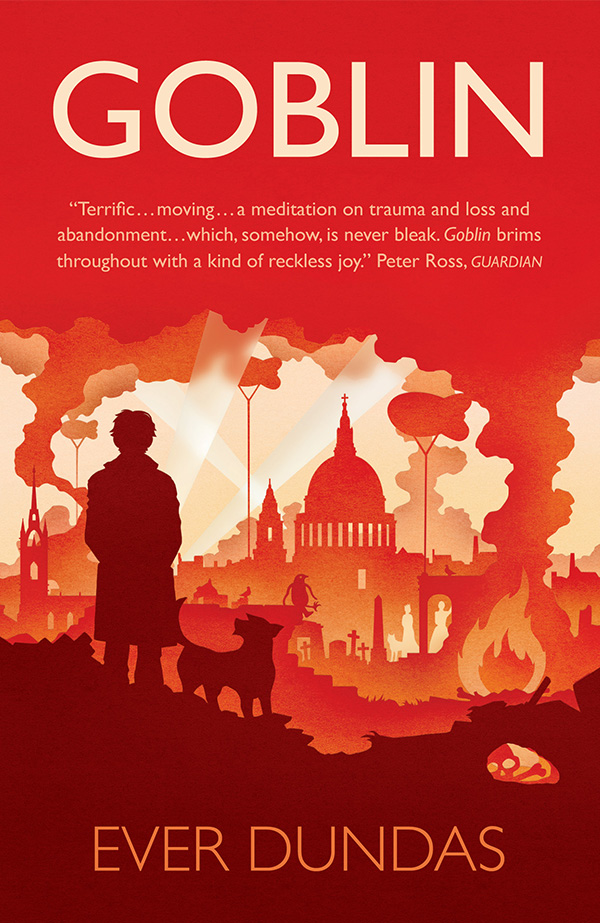
Goblin cover art by Cinn Curtis, courtesy of the author
“The main reason that I did the MA was to finally give me that kick up the arse you need to get that novel written. I wrote the first 20,000 words of Goblin as the MA final project.”
“Both the degree and the MA changed my life. I just absolutely thrived in that environment.”
Although Ever wrote HellSans outwith the supportive university environment, Goblin gave her the skills and confidence to complete the “gargantuan task” of writing a book in the first place. “Now, I’ve overcome that fear [so] I purposely set myself the challenge of writing a plot heavy book.”
“It's hard, you know, getting it all right, getting the plot to work smoothly, making it natural and having all the twists and turns. Some people can be snobby about plot heavy books, but I think it takes a lot of skill.”
Not content with that, HellSans also deals with themes like future tech, the Sci-Fi genre as a whole and an innovative structure that manages to turn the tables on the reader, asking you whose point of view you’ll choose to experience first.
“I don't know what it is about me and my brain, but I don't naturally approach novels in terms of ‘this happens, this happens, this happens’ […] so I wanted to play with that.”
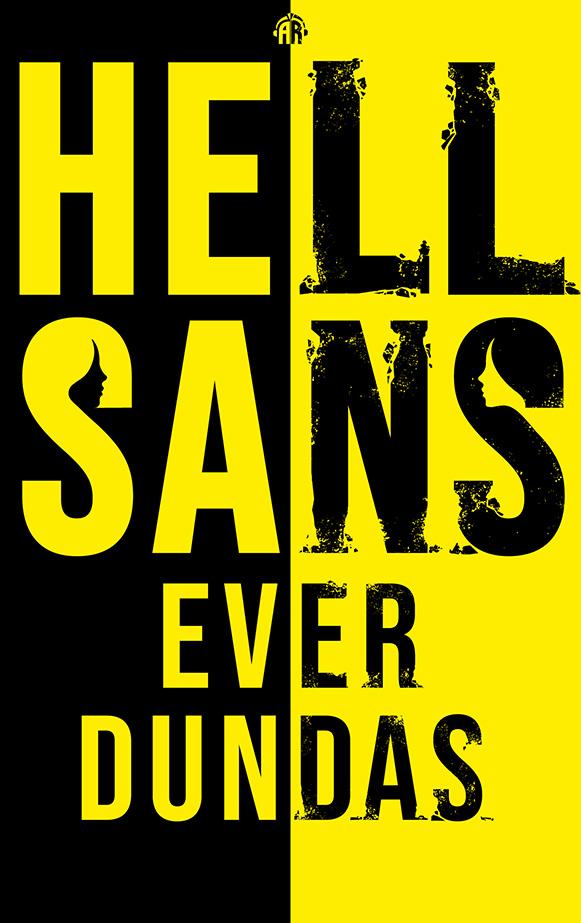
HellSans cover art by Kate Cromwell, courtesy of the author
Of course, this all involves an immense amount of hard work, time and effort. “When I applied to Creative Scotland, I was on Employment and Support Allowance benefit. I’d had to give up my part-time job because I was really ill.”
Ever has Myalgic Encephalomyelitis (ME) which she first fell ill with in her 20s. “ME is a debilitating chronic illness. The main symptoms are exhaustion, post exertional malaise, and cognitive issues.”
“The other effect it gives you is sensory issues, so I can have sensitivity to noise and bright lights and things, [which] sounds like you're just a bit fussy [but] it can really send you into a bad flare up.” The timing of her ME diagnosis “was devastating” she says. “But luckily maybe after about two years it became mild to moderate, so I was able to handle it.”
Later, she was also diagnosed with Fibromyalgia (FMS), which is, as Ever describes it, “a chronic illness that has similar symptoms [to ME] but also has the fun extra symptom of chronic pain.”
I want to see a lot more organisations doing a lot more to support disabled writers and staff […] hire disabled staff, hire disabled editors and support them- Ever Dundas
Now, it’s all about managing her time and activities so she can get work done – but this can be as exhausting as the illness itself. “I have to think through things a lot, assess things and plan. [Non-disabled people] just do things and that always kind of blows my mind. I can't just do things.”
The funding from Creative Scotland turned out to be a lifeline, she says. “I was thrilled when I got the funding, I was absolutely over the moon. It just took a huge weight off me.”
With this support in place and thanks to her friends and family, Ever was able to focus on her writing. “HellSans wouldn't exist without the funding from Creative Scotland. Those things came together to provide the means for me to do that.”
HellSans was written in what Ever describes as her “writing cave,” which she creates variously in her living room or her bedroom at home. “[It’s] where I kind of retreat from the world. I'm like this cave monster who occasionally goes out into the sunlight.”
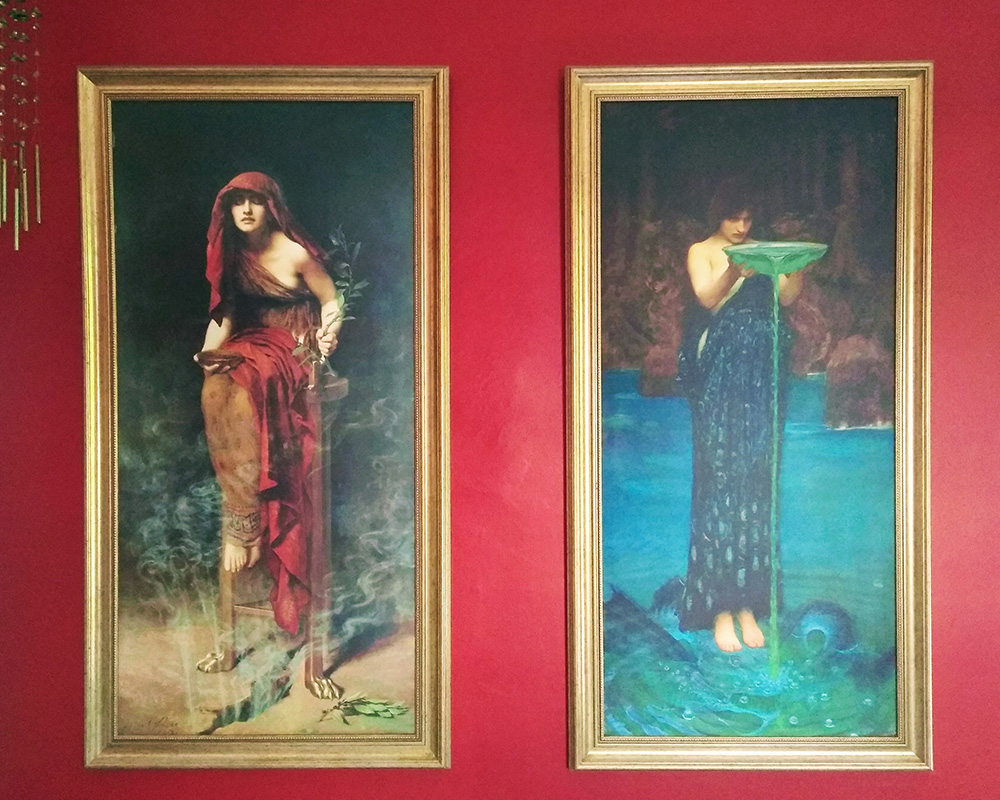
Circe and the Priestess of Delphi watch over Ever’s writing cave. Image courtesy of the author.
Like many disabled people, Ever does a lot of work to manage her illnesses herself, but it was in sheer frustration at the lack of industry support for disabled people that Ever set up Inklusion with writer Julie Farrell in 2021. Its mission is to create ‘a comprehensive access guide for UK literary sector organisations to use when planning events.’
“I really think the industry needs to step up” says Ever. “I want to see a lot more organisations doing a lot more to support disabled writers and staff […] hire disabled staff, hire disabled editors and support them.”
Things have changed though, she says, drawing a comparison between how alone she felt when writing Goblin, and the way things are now. Though the responsibility for taking action continues to fall on disabled people, important gains have been made, and Ever wants people to know that support can be found from places like the Society of Author’s Authors with Disabilities and Chronic Illnesses Network.
Ever’s own advocacy work is a huge part of what’s been achieved so far. In 2019 she started the Crip Collective, a Facebook group for disabled and chronically ill people in the UK publishing industry which now boasts over 100 members. Inklusion was founded “to try and help organisations make events more accessible for both disabled authors and disabled audience members" says Ever.
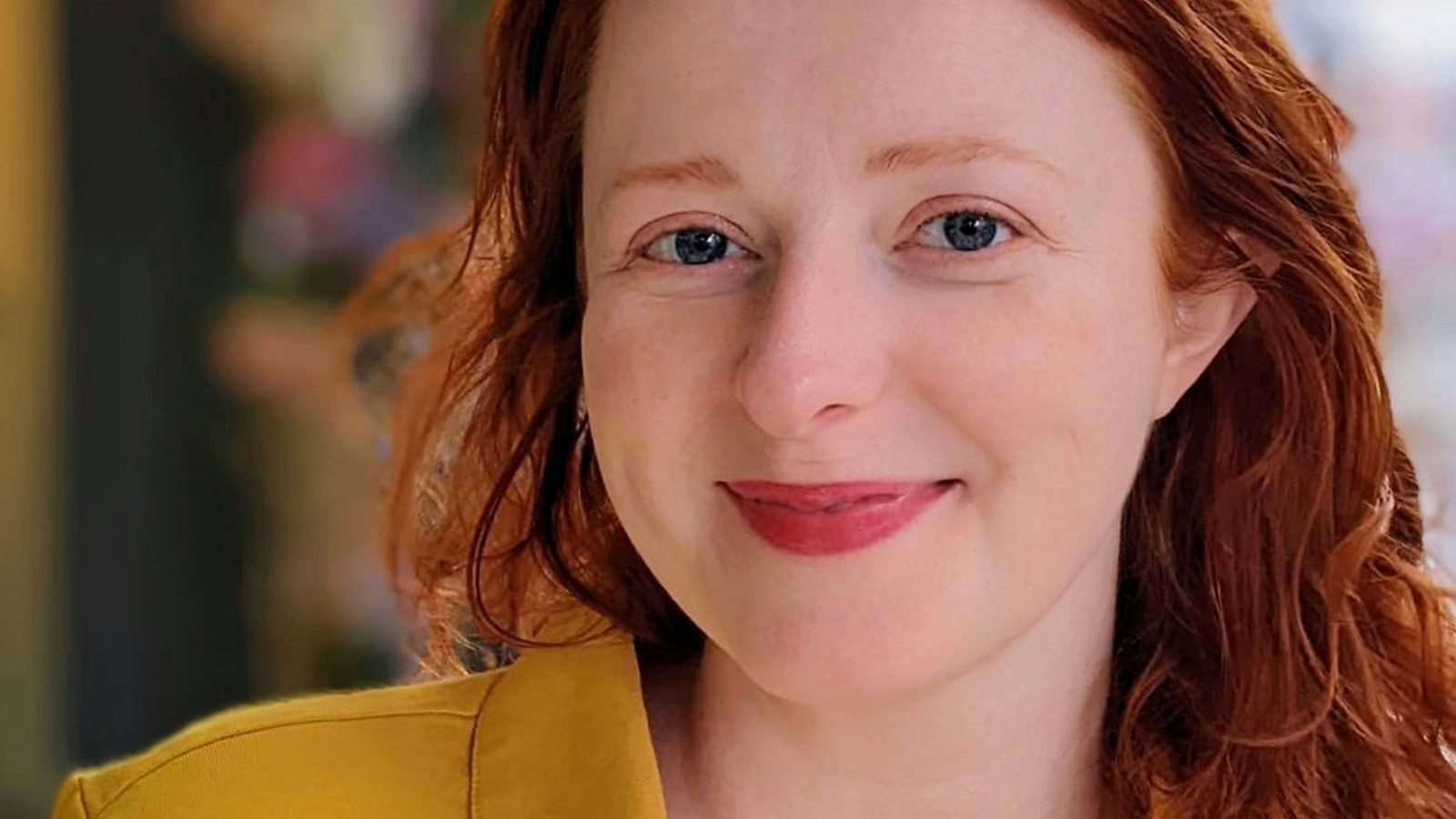
Julie Farrell. Image: Stephen Farrell
Working with more than 20 supporters including Penguin Random House and Wigtown Book Festival, Julie and Ever funded the research and development phase of The Inklusion Guide, which will have its launch event at the Edinburgh International Book Festival on 25 August.
With so many key milestones on the horizon, what else is coming up for Ever Dundas? That comics module she took back in university has stayed with her and while she hopes “to do some comic writing at some point” she’s also “really excited about novel number 3.”
“I pushed myself with HellSans and I've pushed myself with this [next] one, it's got quite a challenging structure again.”
Can she tell us anything more about it? “I'll say that it's mainly set in Venice.”
Fans of Ever Dundas can keep a look out for more on her blog Blood on Forgotten Walls and via Twitter @EverDundas.
